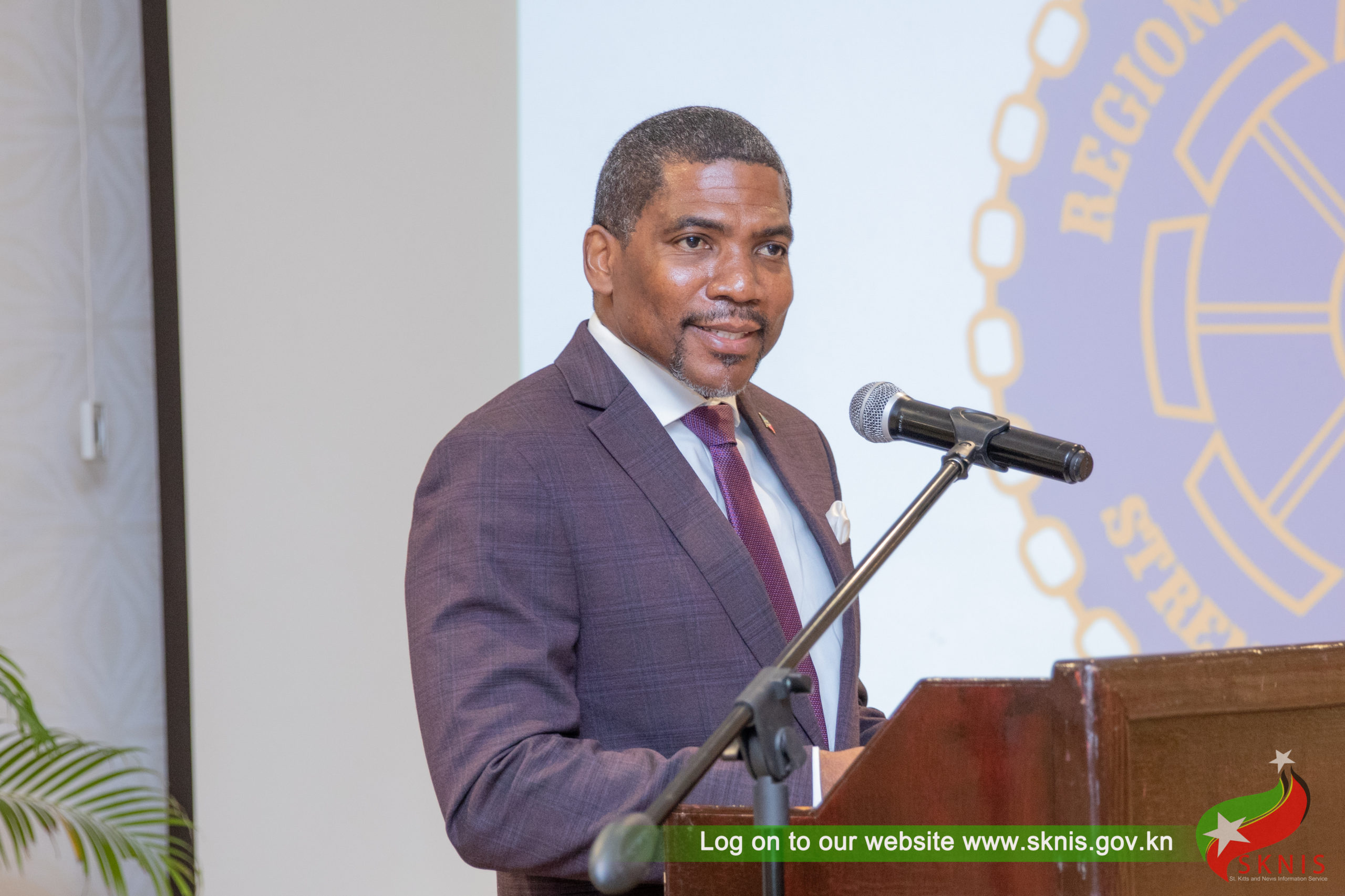Prime Minister Drew Urges Unified Regional Crime Strategy and Strengthened Security Partnerships for Collective Safety
Prime Minister Dr. Terrance Drew of St. Kitts and Nevis, serving as Chairman of the Regional Security System (RSS) Council of Ministers, delivered a powerful address at the 2025 Annual Meeting, advocating for a comprehensive and integrated approach to regional security. His central message emphasized the interconnectedness of security challenges and the necessity for collaborative strategies that bridge national, regional, and international divides. Drawing on the success of St. Kitts and Nevis’ own public health approach to crime prevention, which resulted in a significant reduction in homicides, Prime Minister Drew presented a compelling case for a paradigm shift in addressing security concerns across the Caribbean.
The Prime Minister’s core argument revolved around the concept of interconnectedness. He stressed that effective security strategies must connect various elements within a nation, extending outwards to encompass regional and international partnerships. Domestically, this entails a coordinated effort involving all sectors of society, from law enforcement to community organizations. Regionally, it necessitates a unified front among Caribbean nations to tackle shared threats. Internationally, it calls for robust collaboration with global partners to address transnational challenges. This interconnected approach, argued Prime Minister Drew, is essential for achieving meaningful and sustainable security outcomes.
Highlighting the success of St. Kitts and Nevis’ unique public health approach to crime prevention, Prime Minister Drew attributed the significant reduction in homicides to a holistic strategy that moves beyond traditional law enforcement responses. This innovative approach reframes crime not just as a legal issue but as a public health crisis, necessitating preventative measures, educational initiatives, rehabilitation programs, and community engagement to build what he termed “community immunity.” The 90-Day Citizen Security Campaign served as a practical example of this strategy, demonstrating the effectiveness of a coordinated, community-focused approach.
The core of the public health model, as championed by Prime Minister Drew, rests on the idea that crime, like a disease, can be prevented and mitigated through proactive interventions that address root causes. This involves identifying and addressing underlying social determinants that contribute to criminal activity, such as poverty, unemployment, and lack of access to education and opportunity. By focusing on prevention and rehabilitation, the public health model aims to create a safer and more resilient society, fostering an environment of “community immunity” where criminal behavior is less likely to take hold. This proactive approach goes beyond simply reacting to crime and seeks to address the underlying conditions that contribute to its occurrence.
Prime Minister Drew’s message extended beyond national borders, urging regional and international cooperation to address the evolving security landscape. He underscored the interconnectedness of security in the Caribbean, emphasizing that the stability of one nation directly impacts the security of others. From cybercrime to youth disenfranchisement, from transnational trafficking to climate-induced insecurity, the Prime Minister argued that these threats transcend national boundaries and demand a unified regional response. He called for a shift in perspective, urging leaders to view regional cooperation not just as a desirable option but as a critical necessity for the collective security of the Caribbean.
In his concluding remarks, Prime Minister Drew issued a powerful call to action, urging regional leaders to rise as “doctors for the soul of our region” and embrace a collaborative approach to security. He emphasized the principle of collective responsibility, invoking the local adage “All a we,” signifying that everyone has a role to play in ensuring the safety and well-being of the region. This call to action underscored his conviction that a united front, encompassing national, regional, and international partners, is essential to effectively address the complex security challenges facing the Caribbean. He stressed that the peace and prosperity of the region depend on the shared commitment and collective action of all stakeholders.
Share this content:












Post Comment